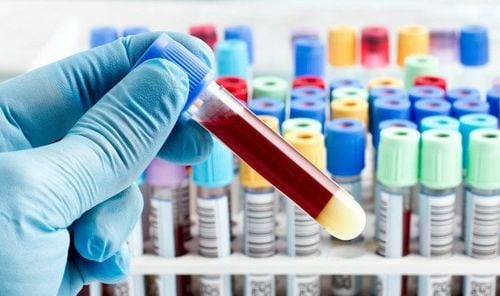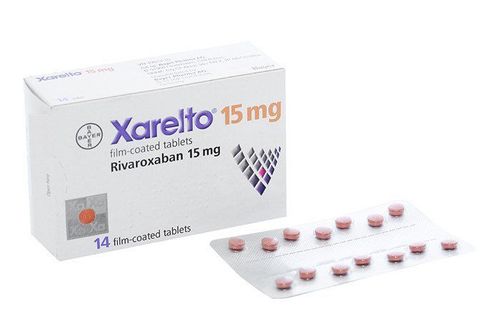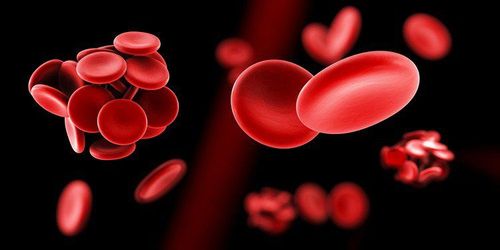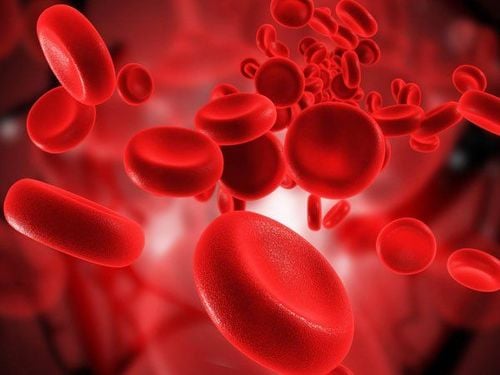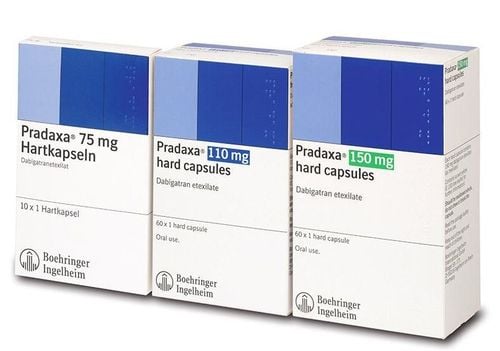This is an automatically translated article.
Every year, about two to three million people around the world need anticoagulants to prevent the formation and development of blood clots, thereby preventing the risk of heart attack, stroke and other consequences caused by blood clotting. To choose the right anticoagulant, let's learn about anticoagulants and the benefits and risks of using them.
1. What are anticoagulants?
Anticoagulants cannot break up blood clots, but they can prevent the formation or slow the growth of blood clots. Anticoagulants are used to treat certain types of heart disease and conditions that increase the risk of dangerous blood clots.
MORE: Side effects of anticoagulants
2. What anticoagulants are available?
Current clinical practice has 3 main classes of anticoagulants used in the treatment and prevention of diseases caused by coagulation. Specifically:
2.1 Unfractionated Heparins (UFH) and Low Molecular Weight (LMWH) Low or moderate molecular weight Heparin anticoagulants can cause rapid or slow action depending on weight molecular weight of the drug. With the ability to produce rapid action, heparin anticoagulants are used in the treatment and prevention of diseases such as pulmonary embolism, hemodialysis, deep vein thrombosis of the lower extremities and acute coronary syndromes. .
It should be noted that the anticoagulants of the Heparin group are used with subcutaneous or intravenous injection and not intramuscularly.
2.2 Warfarin and vitamin K antagonist anticoagulants This is a group of anticoagulants that indirectly block the clotting cycle by competing with vitamin K, preventing the synthesis of a number of coagulation dependent factors. vitamin K in the liver as factors II, VII, IX and X.

Wafarin là thuốc chống đông máu kháng vitamin K
Vitamin K antagonist anticoagulants are taken orally, rapidly absorbed through the intestinal mucosa, however, the effect is slow and increases gradually over time (after 2-5 days). Vitamin K antagonist anticoagulants are particularly effective intravenously, used in the treatment of prolonged anticoagulation after treatment with Heparin.
Vitamin K antagonists are acidic in nature, strongly bound to albumin, so there is a risk of competing for plasma albumin binding with other drugs, or acting on hepatic metabolism, increasing the risk of bleeding. So tell your doctor about all the medications you're taking or ask your pharmacist for advice on whether it's safe to take anticoagulants with other medications.
2.3 Antiplatelet class of drugs While vitamin K antagonists are particularly effective in the veins, antiplatelet agents preferentially act on the arteries. Anticoagulants in this class such as Aspirin, Clopidogrel (Plavix), Dipyridamole (Persantine), Prasugrel (Effient), Ticagrelor (Brilinta), Vorapaxar (Zontivity) prevent platelets from pooling to form platelet plugs leading to blood clot formation.
Antiplatelet drugs are used in first aid hemostasis, prevention of thrombosis in patients with myocardial infarction, cerebrovascular accident, acute coronary syndrome, angina pectoris.
3. What are the benefits of anticoagulants?
The formation of blood clots or blood clots in the heart and brain is very dangerous, as it can cause a heart attack or stroke and other dangerous complications. So if you have certain heart or blood vessel diseases, lupus or limb venous thrombosis (DVT), have had surgery or have had a prosthetic heart valve transplant, the use of anticoagulants will be of great benefit. great.
MORE: Anticoagulant injection during pregnancy: Who needs it?

Việc hình thành cục máu đông hay huyết khối vô cùng nguy hiểm cho người bệnh
4. What risks may occur when using anticoagulants?
Coagulation is not always a bad phenomenon. When you cut your hand, blood clotting helps seal the wound, limiting blood loss. So when taking anticoagulants, there is a greater risk of bleeding if you have minor cuts or bruises, and possibly even internal bleeding if you fall or hit your head.
While using anticoagulants, you should be very careful when participating in collision activities, easy to cause injury. Tell your doctor right away if you notice any signs of unusual bleeding, such as: heavier periods than usual, blood in your urine or stools, bleeding gums or nose, vomiting vomiting or coughing up blood, dizziness, severe headache or stomach pain.
If you take a potassium-sparing anticoagulant such as warfarin, you should have regular blood tests done so your doctor can adjust your dosage if needed, or even switch to a vitamin K "antidote".
Anticoagulants are used to treat certain types of heart disease and conditions that increase the risk of dangerous blood clots. However, to avoid unwanted side effects, patients need to strictly follow the instructions of the doctor.
Please dial HOTLINE for more information or register for an appointment HERE. Download MyVinmec app to make appointments faster and to manage your bookings easily.
Reference source: webmd.com,



